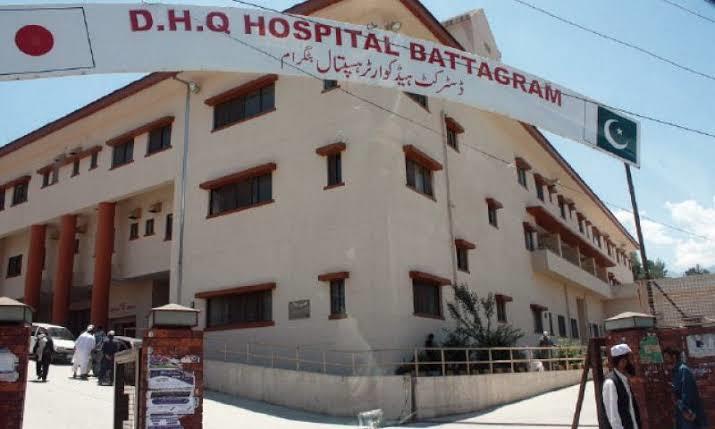
Climate Change Deepens Health Crisis For Women In Battagram's Rural Communities
Sitara Gul, a resident of Kozabanda, highlighted the pressing difficulties faced by pregnant women.“We are facing too many difficulties in pregnancy due to climate change. The unpredictable weather patterns have led to increased stress, dehydration, and health complications,” she shared.
Gul emphasized that these challenges are not just physical but also psychological, as the erratic climate brings anxiety about accessing medical facilities during extreme weather events.
Sameen Khan from Thakot voiced a disturbing concern regarding newborns.“Due to climate change, heavy metals are increasingly present in our environment, contaminating our water and food supplies.
These metals can accumulate in breast milk, which leads to abnormal immune function, allergies, and neurodevelopmental delays in newborns,” she explained. Sameen stressed that this issue not only affects immediate health outcomes but has long-term consequences for the region's younger generation.
Also Read: Jemima Goldsmith Injured in Hiking Accident in South Africa
Kiran, residing in Allai, drew attention to another significant aspect.“Climate change can severely affect menopausal systems. The erratic weather patterns worsen symptoms like hot flashes, insomnia, and fatigue,” she noted. Kiran also pointed out the lack of resources and healthcare facilities, which compounds the struggles of menopausal women in rural areas.
Dr. Kauser, a prominent medical professional in the area, elaborated on the issue.“Climate change impacts women's health disproportionately. Rising temperatures and poor air quality aggravate conditions such as asthma, anemia, and malnutrition, all of which complicate pregnancies and other reproductive health matters. Immediate interventions are needed to mitigate these effects.”
Adding to the conversation, Dr. Ghazala underscored the connection between environmental toxins and maternal health.“The accumulation of heavy metals in water and soil is a direct result of environmental degradation, exacerbated by climate change. These metals enter the food chain and significantly impact lactating mothers and their babies. Raising awareness and ensuring clean water access are critical.”
Dr. Sadia emphasized the broader societal implications.“The health problems faced by women due to climate change extend beyond individual well-being. They disrupt family dynamics and hinder overall community development. Government policies must prioritize gender-sensitive approaches to climate resilience,” she said.
The narratives of Battagram's women and expert insights reveal a critical need for focused interventions. From improving healthcare infrastructure to addressing environmental pollution, an integrated approach is essential to alleviate the disproportionate burden borne by women in this climate crisis.
As Battagram grapples with these challenges, the resilience and determination of its women shine as a beacon of hope, urging stakeholders to act swiftly and decisively.

Legal Disclaimer:
MENAFN provides the information “as is” without warranty of any kind. We do not accept any responsibility or liability for the accuracy, content, images, videos, licenses, completeness, legality, or reliability of the information contained in this article. If you have any complaints or copyright issues related to this article, kindly contact the provider above.






















Comments
No comment